More From News
Welcoming Ramadan with a Fresh Spirit: UIII Inaugurates New Mosque Board
February 13, 2026
Cycle of Civilization
February 12, 2026
October 29, 2025
Contributor: Supriyono | Photo: Achmad Jatnika
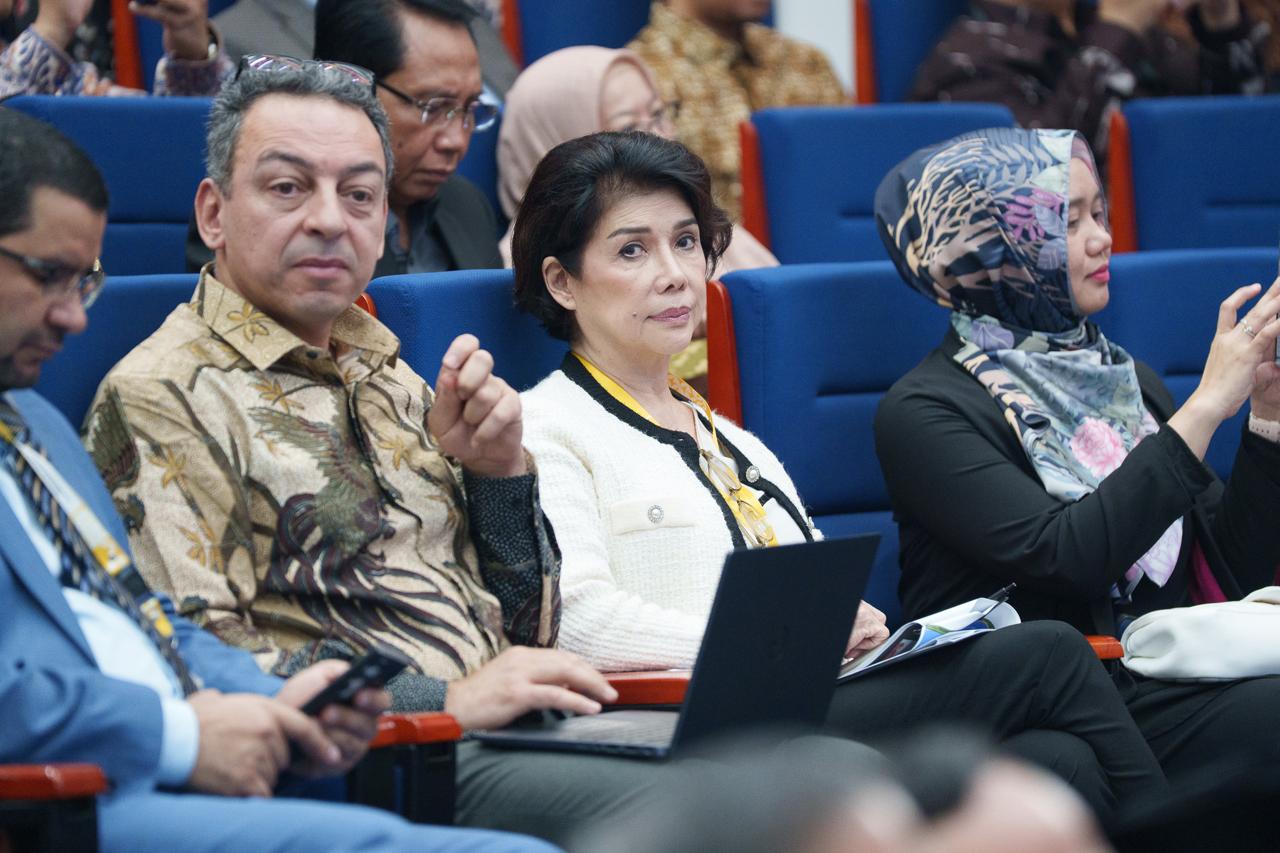
Depok, October 30, 2025 – The Universitas Islam Internasional Indonesia (UIII), in collaboration with the Directorate General of Islamic Education (Ditjen Pendis) of the Ministry of Religious Affairs of the Republic of Indonesia, officially opened the Annual International Conference on Islam, Science and Society (AICIS+) 2025.
This international academic forum brings together cross-disciplinary thinkers to discuss the future of Islam and global civilization amid technological disruptions and ecological crises. The conference was officially opened by Professor Kamaruddin Amin, Sec.etary-General of Indonesia’s Ministry of Religious Affairs
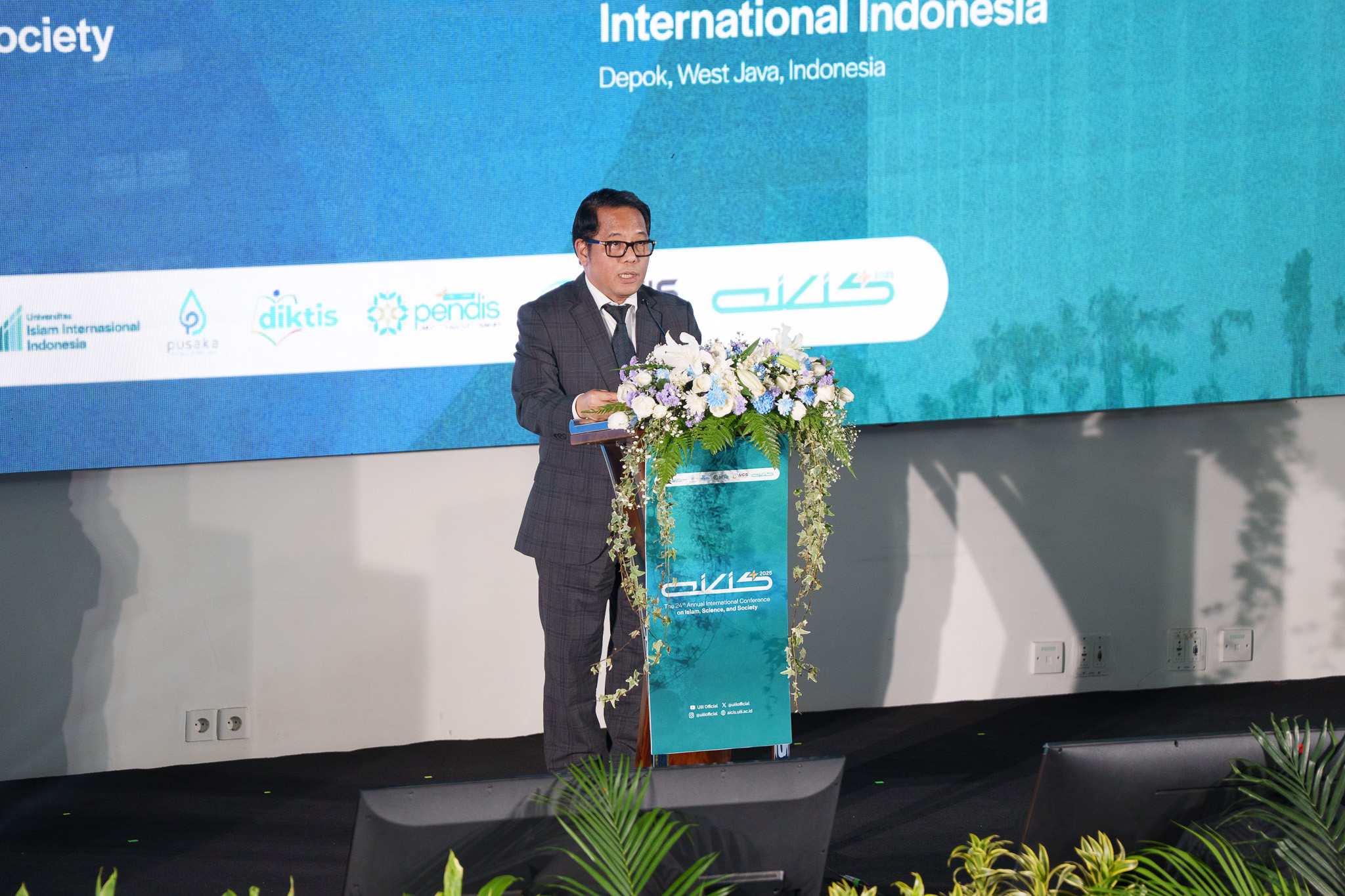 Carrying the theme “Islam, Ecotheology, and Technological Transformation: Multidisciplinary Innovations for a Just and Sustainable Future,” the conference is held from October 29–31, 2025, at UIII Campus in Depok. It features 12 international speakers from 8 countries — Malaysia, Australia, Indonesia, the United Arab Emirates, the United States, the United Kingdom, Singapore, and France.
Carrying the theme “Islam, Ecotheology, and Technological Transformation: Multidisciplinary Innovations for a Just and Sustainable Future,” the conference is held from October 29–31, 2025, at UIII Campus in Depok. It features 12 international speakers from 8 countries — Malaysia, Australia, Indonesia, the United Arab Emirates, the United States, the United Kingdom, Singapore, and France.
Director General of Islamic Education, Prof. Dr. H. Amien Suyitno, M.Ag., emphasized that AICIS+ 2025 marks a strategic momentum to reaffirm Islam’s role in science and humanity.
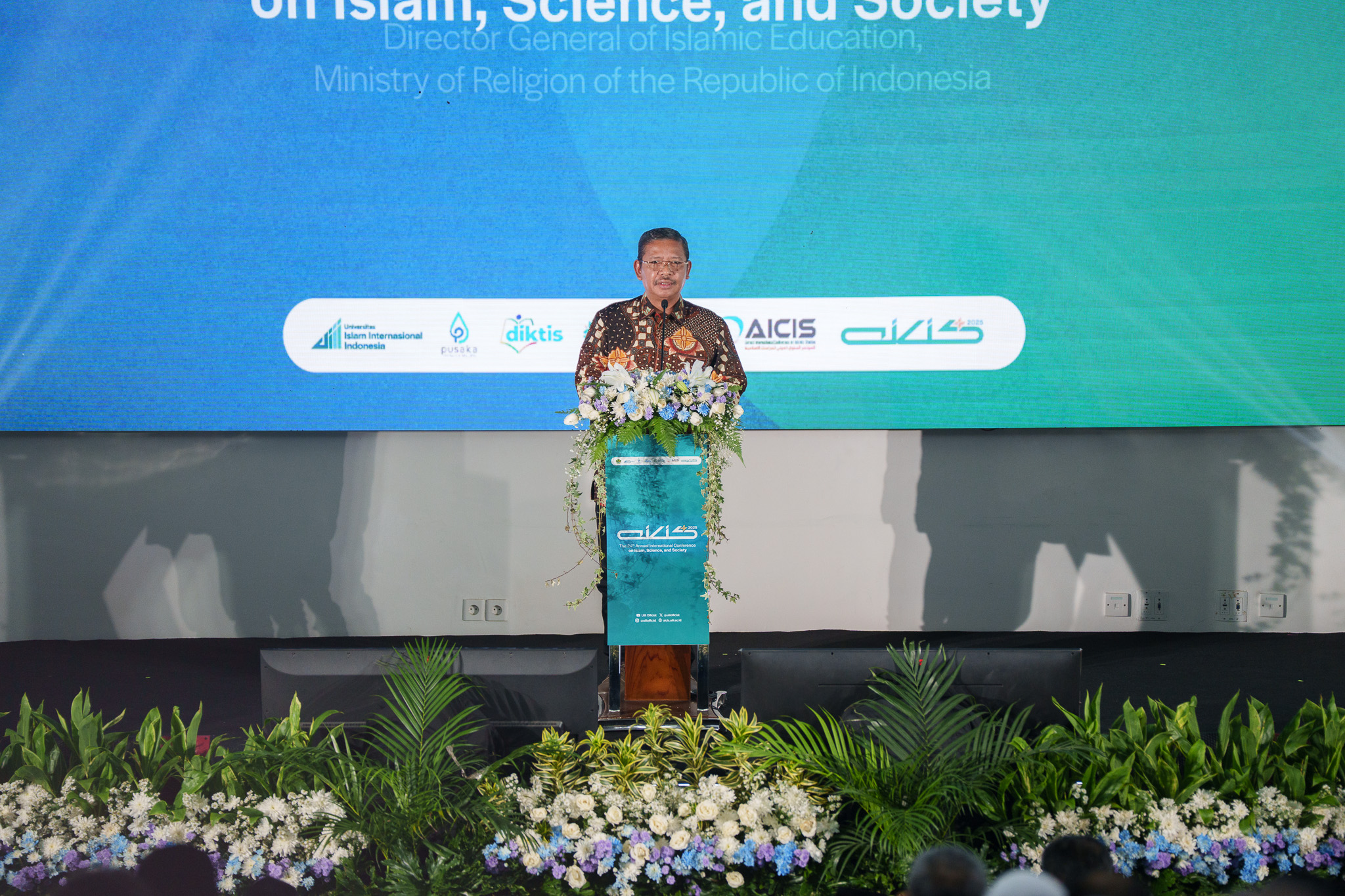 “The Ministry of Religious Affairs is committed to making AICIS+ not merely an academic forum, but a space where Islamic intellectual traditions meet global innovation. This is the face of Indonesian Islam—moderate, open, and solution-oriented,” he stated.
“The Ministry of Religious Affairs is committed to making AICIS+ not merely an academic forum, but a space where Islamic intellectual traditions meet global innovation. This is the face of Indonesian Islam—moderate, open, and solution-oriented,” he stated.
Echoing this, Prof. Dr. Phil. Sahiron, Director of Islamic Higher Education, added: “AICIS+ 2025 broadens the intellectual horizons of our academics. It is a space where Muslim and non-Muslim scholars engage in equal dialogue to build a just, sustainable, and civilized world.”
UIII Rector Prof. Dr. Jamhari stated that AICIS+ 2025 represents a new milestone in the evolution of global Islamic studies. “The presence of these speakers and scholars reflects AICIS+ 2025’s commitment to offering a comprehensive comparative analysis of Islamic thought development across the world,” he said.
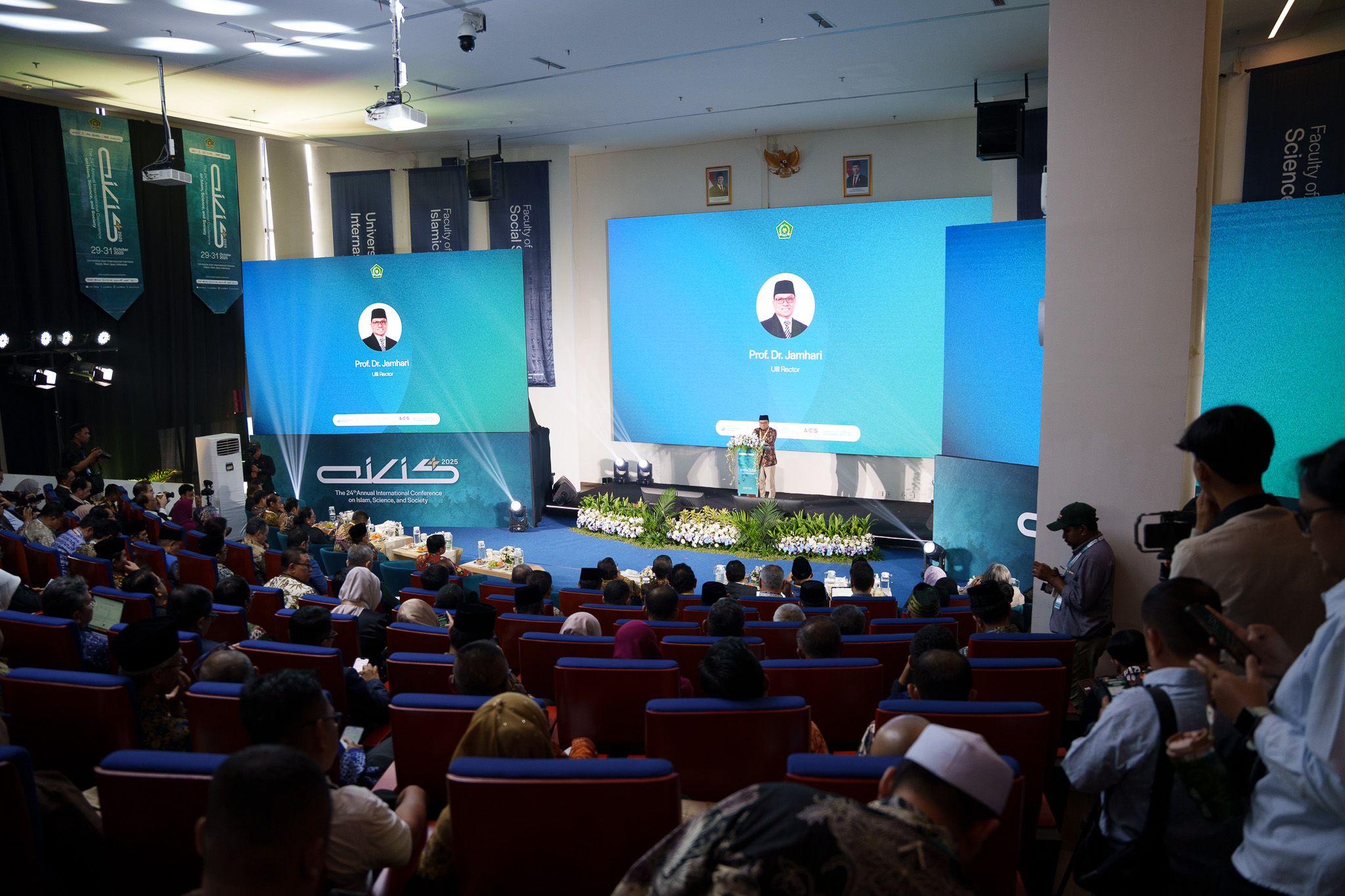 The two keynote speakers of AICIS+ 2025 are Prof. Farish A. Noor (Malaysia–UIII), a renowned historian and political scientist specializing in Southeast Asian studies, and Prof. Shahram Akbarzadeh, Professor of Middle East and Central Asian Politics at Deakin University, Australia.
The two keynote speakers of AICIS+ 2025 are Prof. Farish A. Noor (Malaysia–UIII), a renowned historian and political scientist specializing in Southeast Asian studies, and Prof. Shahram Akbarzadeh, Professor of Middle East and Central Asian Politics at Deakin University, Australia.
The conference also features two main plenary sessions. The first, titled “Decolonial Perspectives: Islamic Law and Ecotheology for Peacebuilding and Environmental Sustainability,” includes speakers such as Prof. Eka Srimulyani (UIN Ar-Raniry, Indonesia), Dr. Muhammad Ahmad Ibrahim Al-Jahsh (Al-Qasimiya University, UAE), Aria Nakissa, Ph.D. (UIII–USA), and Prof. Ayman Shihadeh (SOAS University of London, UK).
The second plenary session explores “Transformations in the Muslim World: Innovative Industries, Adaptive Public Health, and Disruptive Technologies Amid Humanitarian Crises,” featuring Assoc. Prof. Dr. Hamrila binti Abdul Latif (Universiti Malaysia Sarawak), Fajar B. Hirawan, Ph.D. (UIII), Prof. Mohammed Quaddus (Curtin University, Australia), Assoc. Prof. Sulfikar Amir (Nanyang Technological University, Singapore), and Assoc. Prof. Stéphane Lacroix (Sciences Po, Paris).
In a special presentation, Prof. Dr. Meiwita Paulina Budiharsana from Universitas Indonesia will deliver a talk titled “Public Health in the Muslim World: Exploring Ethical Frameworks and Innovative Solutions for Health and Well-being.”
Chair of the AICIS+ 2025 Steering Committee, Prof. Dr. Amsal Bakhtiar, emphasized that the conference serves as an important dialogue between knowledge, faith, and the future of humanity.
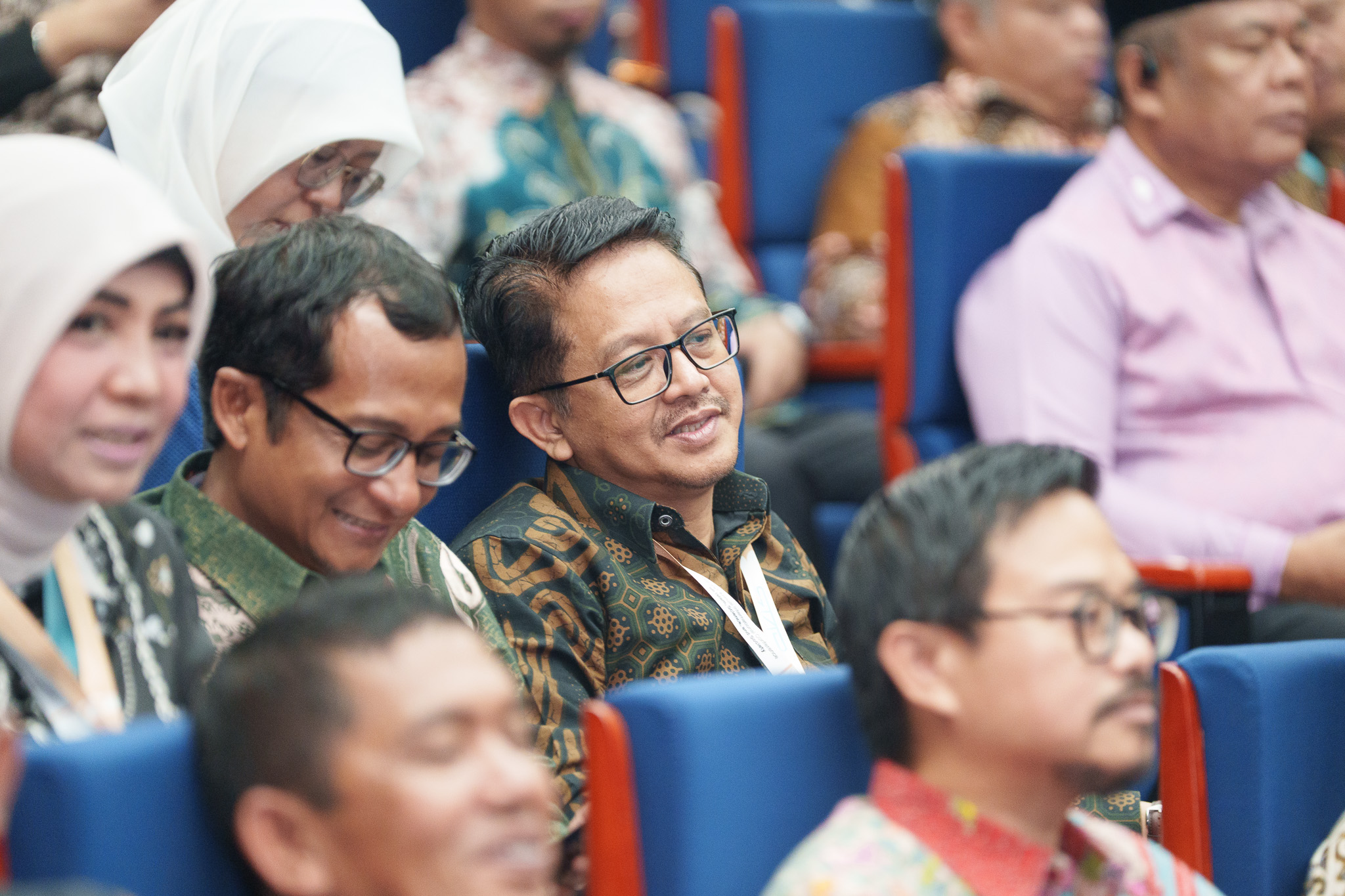 “The uniqueness of AICIS+ 2025 lies in its ability to bridge Eastern and Western intellectual traditions. It aims to create a productive dialogue between spiritual values and modern scientific approaches in addressing global challenges,” he said.
“The uniqueness of AICIS+ 2025 lies in its ability to bridge Eastern and Western intellectual traditions. It aims to create a productive dialogue between spiritual values and modern scientific approaches in addressing global challenges,” he said.
Meanwhile, Dr. Chaider Bamualim, Chair of the Organizing Committee, added: “AICIS+ 2025 is designed to respond to the global challenges faced by the Muslim world—from technological disruption and ecological crises to social transformation.”
Universitas Islam Internasional Indonesia